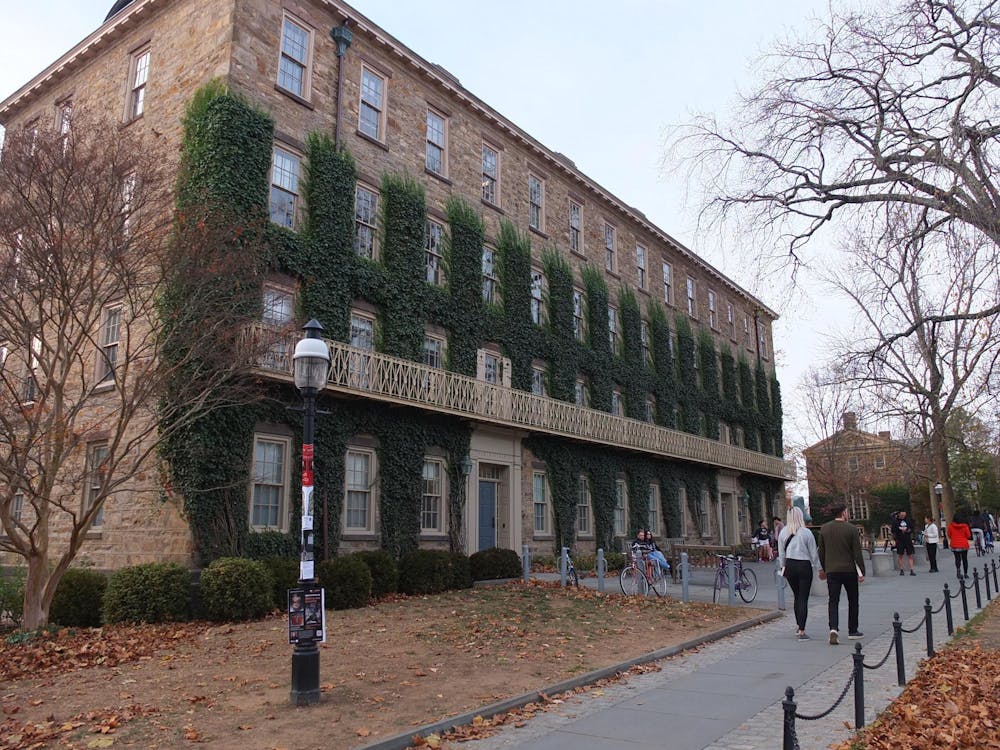The Honor Committee released statistics for the 2019–24 academic years at the end of March, following reporting from The Daily Princetonian on a two-year absence of the committee’s data, which are typically published annually. Data since 2022 had previously not been reported.
The statistics, released in a report aggregating data from the past five years, include violations of the Honor Code, such as collaboration with a peer, unauthorized use of outside materials, doctoring a regraded examination, writing overtime, and failing to submit an examination.
According to the Honor Committee’s constitution, the committee is composed of up to 18 members who represent the student body and address violations of the Honor Code. Article V states that “every year, the Committee will publish aggregated, anonymous statistics for the last five years.”
The chair of the Honor Committee, Nadia Makuc ’26, said that the delay in publishing the statistics was due to “clerical errors and miscommunication of responsibilities.”
Fifty-one violations of the Honor Code were reported from Fall 2019 to Spring 2024. Thirty-one of these went to hearings, or about 60 percent of all violations. Eighteen were found responsible, or 35 percent of all violations. Of the cases that went to hearings, 58 percent were found responsible.
The highest number of violations was for unauthorized use of outside material, including generative AI. These unauthorized uses of outside material made up 24 violations — or 47 percent of all violations — and 11 were found responsible.
The most commonly used kind of prohibited materials was listed as “other/not listed.” This consisted of 90 percent of all cases that were found responsible, or 10 out of 11 total. The use of generative AI falls into the “other/not listed” category.
The second highest violation was collaboration, which had 16 violations — 31 percent of all violations — of which two were found responsible.
From Fall 2017 to Spring 2022, the Honor Committee saw similar numbers. During that period, there were 76 violations, 27 of which were moved to a hearing and 14 of which were found responsible.
While the Honor Committee reviewed 51 infractions over the past five years, the Committee on Discipline, the dean of undergraduate students, and the Residential College Disciplinary Board found 378 violations for the 2023–24 academic year alone.

Princeton’s Committee on Discipline is responsible for all academic integrity violations besides those that relate to in-class examinations. The committee consists of at least six members of the faculty, eight undergraduate students, and the Deputy Dean of the College. The committee also oversees behavioral violations, such as alcohol and drug use. According to the annual discipline report, many violations also get reviewed by the dean of undergraduate students through “Dean’s Dispositions” and the Residential College Disciplinary Board.
The possible penalties for those found responsible include a dean’s warning, a reprimand, disciplinary probation lasting three to 48 months, suspension lasting one to four semesters, a suspension not served, the withholding of a degree, and expulsion.
Of the 378 total infractions, the committee reported 63 academic infractions, for which 42 students were found responsible. These violations included plagiarism and collaboration without recognition.
The 2023-24 discipline report details an “increase in the use of generative AI,” such as ChatGPT, in the cases released from 2024. Ten cases involved the use of ChatGPT on take-home exams, where students copied directly from the AI chat.
The most common penalty for academic integrity violations was disciplinary probation, with 25 students receiving this penalty. Examples of where this penalty was used include a “very limited amount of plagiarism.”
According to the report, this type of violation also includes “reflecting carelessness rather than an intent to misrepresent authorship.” This includes instances where “the assignments were worth a small portion of the course grade,” or if the student failed to fully cite passages.
Of the 378 infractions, 158 were due to the use of alcohol — 42 percent of all infractions. One hundred and twenty-one students were found responsible. Low-risk alcohol violations included “the possession of an open container of alcohol in a common space” and having drinks with less than 30 percent alcohol content at the hosting of a gathering.
One of the penalties given to a student was 48 months of disciplinary probation for “submitting inaccurate information to the Financial Aid office” to obtain financial aid. Another student received 48 months for “striking a Department of Public Safety officer as they attempted to bring the student to medical care.”
The year before, from 2022–23, the disciplinary report disclosed 515 infractions, for which 336 students were found responsible.
Clara Docherty is a News contributor for the ‘Prince.’
Please send any corrections to corrections[at]dailyprincetonian.com.
Correction: this piece has been updated to better reflect the parties that hear the cases and the possible penalties imposed by the Committee on Discipline. Additionally, this piece has been updated to reflect that reported infractions are not referred cases; the lower number of students found responsible is because students can be found responsible for multiple infractions.








